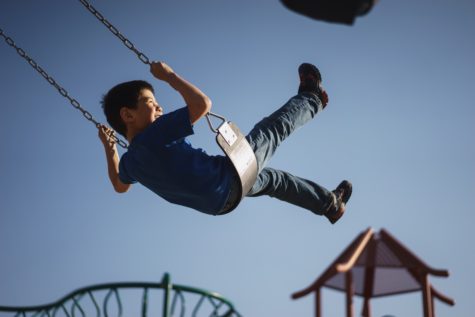SEATTLE — Flying through the air on the playground swing set may be a favorite activity for children of all ages, but it’s also teaching youngsters valuable social skills, believe it or not.
A new study finds that kids who play on the swing are also learning how to get along and work cohesively.
Researchers at the University of Washington’s Institute for Learning & Brain Sciences (I-LABS) paired up 4-year-olds who had previously not known one another in playing on a customized swing set.

The pairs were randomly placed into three different groups: some pairs swung together on a swing set that operated in a synchronized fashion; others on a set in which the swings moved out of sync with one another; and a final group of pairs didn’t swing at all.
Following their swing sessions— or lack thereof— children were asked to participate in a computer game or a puzzle-like game with their partners that measured their level of cooperation with their designated peer.
What the researchers found was that children who swung in unison not only showed greater cooperation with one another in the follow-up activity than those who swung out of sync or not at all, but completed their assigned task with greater speed.
The researchers speculate that moving in sync creates a type of camaraderie, especially for children, who are often seeking to be understood.
“Cooperation has both a social and cognitive side, because people can solve problems they couldn’t solve alone,” explains lead researcher and psychology professor Andrew Meltzoff in a university news release. “We didn’t know before we started the study that cooperation between 4-year-olds could be enhanced through the simple experience of moving together. It’s provocative that kids’ cooperation can be profoundly changed by their experiences.”
Since the ability to cooperate is widely seen as a desirable skill, this study provides further proof for the notion that cooperation is a teachable behavior.
Previous studies had found evidence for music promoting cooperative behavior; for example, kids marching together were found to be more likely to share with one another.
Therefore, perhaps encouraging activities that promote solidarity between kids is the key to lifelong cooperation skills, the researchers argue.
“Synchrony enhances cooperation, because your attention is directed at engaging with another person, at the same time,” says co-author Tal-Chen Rabinowitch, a postdoctoral researcher at I-LABS. “We think that being ‘in time’ together enhances social interaction in positive ways.”
The study’s findings were published in the Journal of Experimental Child Psychology.
